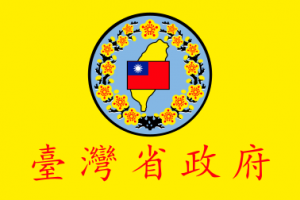Language/Min-nan-chinese/Vocabulary/Family
Hi Min Nan Chinese learners! 😊
In this lesson, we will learn the Min Nan Chinese vocabulary related to family. Knowing this vocabulary is essential when communicating with native speakers on a personal level.
Take a moment to explore these relevant pages as you conclude this lesson: Say Hello and Greetings in Min Nan Chinese, Fruits, Colors & Drinks.
Basic Family Vocabulary[edit | edit source]
Let's start with some basic vocabulary related to family:
| Min Nan Chinese | Pronunciation | English |
|---|---|---|
| 父親 (fú qīn) | /fu˧ tɕʰin˥/ | father |
| 母親 (mǔ qīn) | /mu˧ tɕʰin˥/ | mother |
| 兒子 (ér zǐ) | /ər˥ tsɨ˥/ | son |
| 女兒 (nǚ ér) | /nɨ˥ ər˥/ | daughter |
Let's take a look at some more words using a dialogue:
- Person 1: 我的祖父今天要來我們家。(Góa ê tsu-pú kin-tīn beh lâi góa mài. - "My grandfather is coming to our house today.")
- Person 2: 祖父?他是你父親的父親嗎?(Tsú-pú? Tā sī lí fú qīn ê tsu-pú mā? - "Grandfather? Is he your father's father?")
In this dialogue, we use the word "祖父" (tsú-pú) for grandfather, which is derived from the Chinese word for ancestor. Note that in Min Nan Chinese, different familial relationships are just formed by adding the word for the elder or younger, as you will see in the next section.
Extended Family Vocabulary[edit | edit source]
Now let's take a look at some extended family vocabulary:
| Min Nan Chinese | Pronunciation | English |
|---|---|---|
| 兒子的兒子 (ér zǐ ê ér zǐ) | /ər˥ tsɨ˥ ê ər˥ tsɨ˥/ | grandson |
| 女兒的女兒 (nǚ ér ê nǚ ér) | /nɨ˥ ər˥ ê nɨ˥ ər˥/ | granddaughter |
| 兄弟 (xiōng dì) | /ɕi̯əŋ˥ ti˥/ | brother |
| 姊妹 (zǐ mèi) | /tɕi˥ mɛi˥/ | sister |
| 父母 (fù mǔ) | /fu˧ mu˧/ | parents |
| 叔叔 (shū shu) | /ʂu˧ ʂu˧/ | uncle (father's younger brother) |
| 阿姨 (ā yí) | /a˥ ji˥/ | aunt (father's younger sister) |
In Min Nan Chinese, the word for uncle and aunt depends on the relationship to the father, rather than the mother. For example, "叔叔" (shū shu) is used to refer to the father's younger brother or the mother's brother-in-law. Similarly, "阿姨" (ā yí) is used to refer to the father's younger sister or the mother's sister-in-law.
Let's see some more examples in a dialogue:
- Person 1: 這是我父親的哥哥,也就是我的叔叔。(Chit-sī góa fú qīn ê koh-koh, iāu-jī sī góa ê shū-shu. - "This is my father's older brother, also known as my uncle.")
- Person 2: 我聽說你是否有姊妹?(Góa tīng-suah lí sīfú yǒu zǐ mèi? - "I heard you have sisters?")
In this dialogue, we use the words "叔叔" (shū shu) and "姊妹" (zǐ mèi) for uncle and sister, respectively.
Marriage and Relationships[edit | edit source]
Now let's take a look at some vocabulary related to marriage and relationships:
| Min Nan Chinese | Pronunciation | English |
|---|---|---|
| 妻子 (qī zǐ) | /tɕʰi˥ tsɨ˥/ | wife |
| 丈夫 (zhàng fu) | /tʂaŋ˧ fu˥/ | husband |
| 女婿 (nǚ xù) | /nɨ˥ syu˥/ | son-in-law |
| 兒媳 (ér xí) | /ər˥ si˥/ | daughter-in-law |
| 戀人 (liàn rén) | /li̯ɛn˧ ʐən˧/ | lover |
Let's see some more examples in a dialogue:
- Person 1: 這是我的女婿,他的中文名字叫張三。(Chit-sī góa nǚ xù, tā ê Tiong-bûn miâ-tsú kioh Tiuⁿ-saⁿ. - "This is my son-in-law, his Chinese name is Zhang San.")
- Person 2: 你有戀人嗎?(Lí ū liàn rén mā? - "Do you have a lover?")
In this dialogue, we use the words "女婿" (nǚ xù) for son-in-law and "戀人" (liàn rén) for lover.
Conclusion[edit | edit source]
In this lesson, we have learned the basic and extended family vocabulary, as well as some words related to marriage and relationships in Min Nan Chinese. Keep in mind that, in Min Nan Chinese, familial relationships are described by adding the word for "elder" or "younger." For instance, "big brother" is "大哥" (tāi kok), whereas "little brother" is "小弟" (sió ti).
It is also important to note that the use of familial terms can vary depending on the dialect and region. To improve your Min Nan Chinese vocabulary, you can also use the Polyglot Club website. Find native speakers and ask them any questions!
Remember, taking the time to learn and understand family-related vocabulary is essential for effective communication with native speakers in Min Nan Chinese!
➡ If you have any questions, please ask them in the comments section below.
➡ Feel free to edit this wiki page if you think it can be improved. 😎

